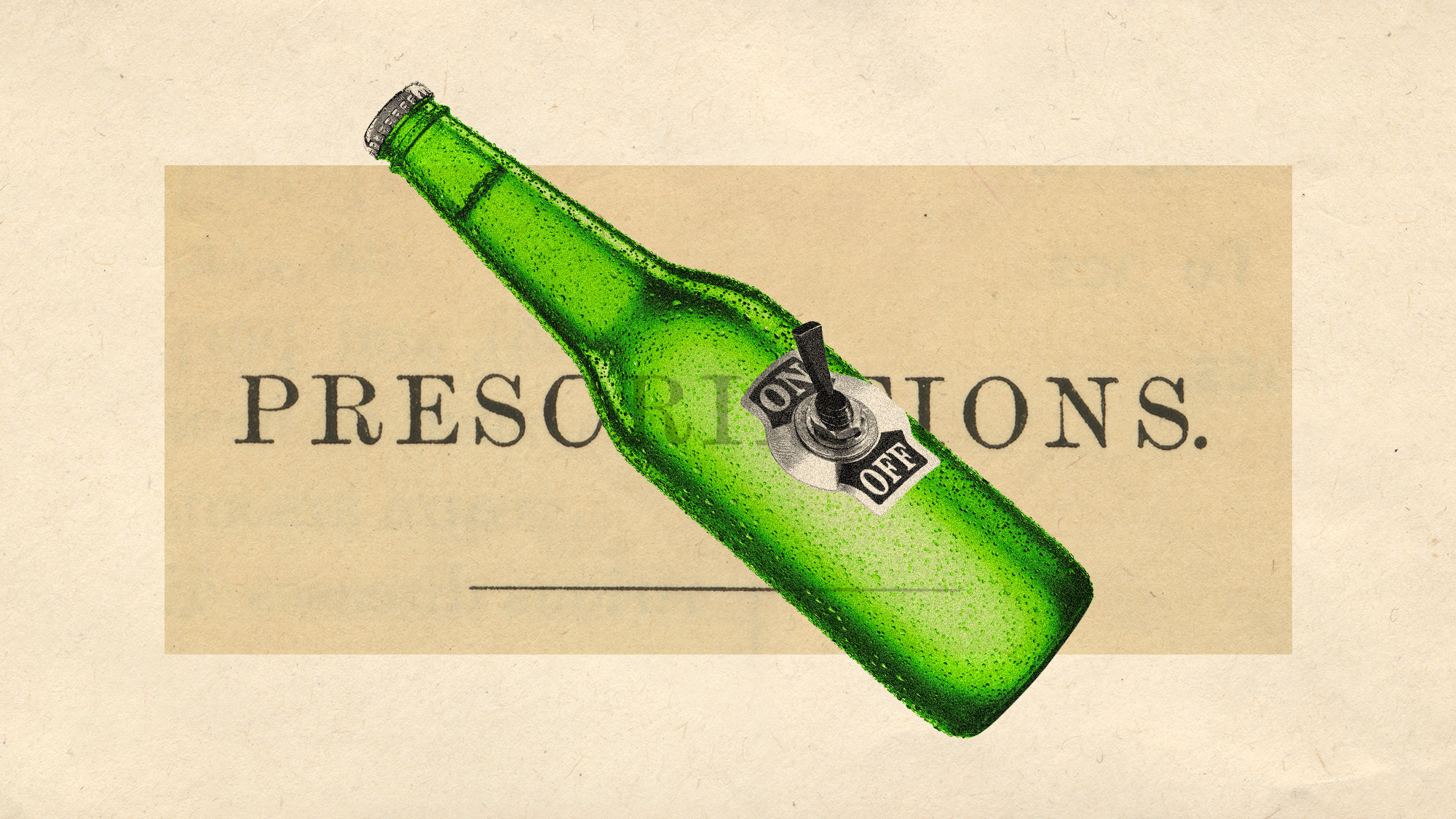Naltrexone: the wonder drug for alcoholism
The pill is said to have a high success rate in reducing alcohol cravings with few side effects

A free daily email with the biggest news stories of the day – and the best features from TheWeek.com
You are now subscribed
Your newsletter sign-up was successful
Although it's been used since the 1980s, naltrexone remains a relatively unknown treatment for alcohol dependency.
Costing around £3 per pill, the drug blocks the "euphoric and sedative effects" of alcohol which helps "reduce cravings" and cut down consumption, said London's The Standard. Naltrexone reportedly has a claimed 80% success rate in clinical trials and can be prescribed by the NHS but is more commonly accessible privately.
However, some argue that the drug could be used for heavy drinkers who do not meet the "criteria for alcohol addiction" and help stop them from "mindlessly" drinking, which can lead to dependency, said Esther Walker in The Times.
The Week
Escape your echo chamber. Get the facts behind the news, plus analysis from multiple perspectives.

Sign up for The Week's Free Newsletters
From our morning news briefing to a weekly Good News Newsletter, get the best of The Week delivered directly to your inbox.
From our morning news briefing to a weekly Good News Newsletter, get the best of The Week delivered directly to your inbox.
An 'off-switch' for drinkers
Naltrexone is an opioid antagonist, meaning it blocks opioid receptors in the brain that cause a "dopamine high" and subsequently lead to craving, said The i Paper. People can "still get drunk", but the lack of a "euphoric effect" should reduce the appetite to drink more and more.
Naltrexone is not the only drug used to treat alcoholism, but its high success rate and lack of substantial side effects are what led it to go "viral on social media" and be "praised for helping those struggling with alcohol overconsumption", said Metro.
There are some common side effects, including headache, nervousness, nausea, dizziness, decreased appetite, and stomach upset, while more serious uncommon side effects include depression and hallucinations. Users also need to be aware that it "stops painkillers that contain opioids working", according to the NHS.
The drug is taken an hour before drinking alcohol and can act as an "off-switch" for problem drinkers, "drastically" reducing how much they drink, said The Standard.
A free daily email with the biggest news stories of the day – and the best features from TheWeek.com
Naltrexone is used as part of the Sinclair Method, a treatment for alcohol addiction devised by Dr David Sinclair at the Finnish Foundation for Alcohol Studies. The method works by trying to "reset the neural pathways" that have been "created by regular drinking", said Walker. The user keeps drinking while taking naltrexone, but when there is "no buzz", eventually your "brain will stop insisting that you do it".
'Tangled up in red tape'
In a first-person account of trialling the drug, Walker said it had been "staggeringly effective" and "within four weeks" she was able to regain a "functioning relationship with alcohol". It still "requires willpower and a readiness to address bad habits", she added, but not "superhuman levels".
In a similar account of using naltrexone, Annabel Fenwick Elliot in The Telegraph said it had been "game-changing" and "severed" the "neurological bond" that she had with alcohol. Why, then, is it not more readily available to people wanting to reduce alcohol intake? The answer is "tangled up in red tape". The drug is "out of patent" and therefore there is "no real money to be made by Big Pharma", while in the UK it is "tricky for GPs to prescribe thanks to licensing".
There is also a sense that the government doesn't want to "prioritise alcohol reduction", said Walker. At the same time, National Institute for Health and Care Excellence guidelines advise prescribing naltrexone only "alongside a programme of abstinence" which will not "sever the link in the mind between the alcohol and the dopamine reward".
Richard Windsor is a freelance writer for The Week Digital. He began his journalism career writing about politics and sport while studying at the University of Southampton. He then worked across various football publications before specialising in cycling for almost nine years, covering major races including the Tour de France and interviewing some of the sport’s top riders. He led Cycling Weekly’s digital platforms as editor for seven of those years, helping to transform the publication into the UK’s largest cycling website. He now works as a freelance writer, editor and consultant.
-
 Bad Bunny’s Super Bowl: A win for unity
Bad Bunny’s Super Bowl: A win for unityFeature The global superstar's halftime show was a celebration for everyone to enjoy
-
 Book reviews: ‘Bonfire of the Murdochs’ and ‘The Typewriter and the Guillotine’
Book reviews: ‘Bonfire of the Murdochs’ and ‘The Typewriter and the Guillotine’Feature New insights into the Murdoch family’s turmoil and a renowned journalist’s time in pre-World War II Paris
-
 Witkoff and Kushner tackle Ukraine, Iran in Geneva
Witkoff and Kushner tackle Ukraine, Iran in GenevaSpeed Read Steve Witkoff and Jared Kushner held negotiations aimed at securing a nuclear deal with Iran and an end to Russia’s war in Ukraine
-
 Scientists are worried about amoebas
Scientists are worried about amoebasUnder the radar Small and very mighty
-
 Metal-based compounds may be the future of antibiotics
Metal-based compounds may be the future of antibioticsUnder the radar Robots can help develop them
-
 A Nipah virus outbreak in India has brought back Covid-era surveillance
A Nipah virus outbreak in India has brought back Covid-era surveillanceUnder the radar The disease can spread through animals and humans
-
 Deaths of children under 5 have gone up for the first time this century
Deaths of children under 5 have gone up for the first time this centuryUnder the radar Poor funding is the culprit
-
 A fentanyl vaccine may be on the horizon
A fentanyl vaccine may be on the horizonUnder the radar Taking a serious jab at the opioid epidemic
-
 More adults are dying before the age of 65
More adults are dying before the age of 65Under the radar The phenomenon is more pronounced in Black and low-income populations
-
 Scientists have developed a broad-spectrum snake bite antivenom
Scientists have developed a broad-spectrum snake bite antivenomUnder the radar It works on some of the most dangerous species
-
 Covid-19 mRNA vaccines could help fight cancer
Covid-19 mRNA vaccines could help fight cancerUnder the radar They boost the immune system